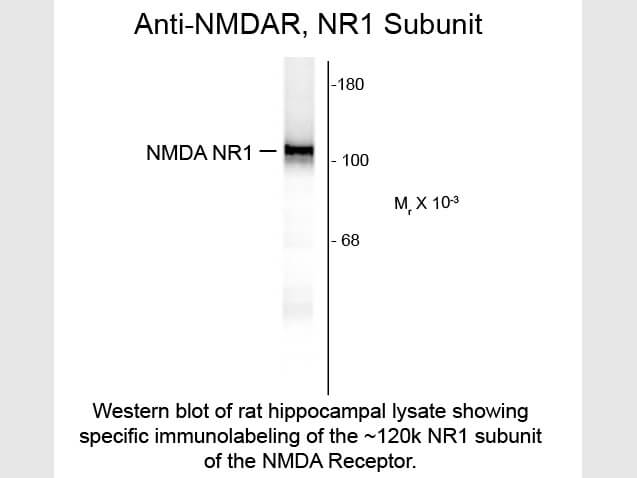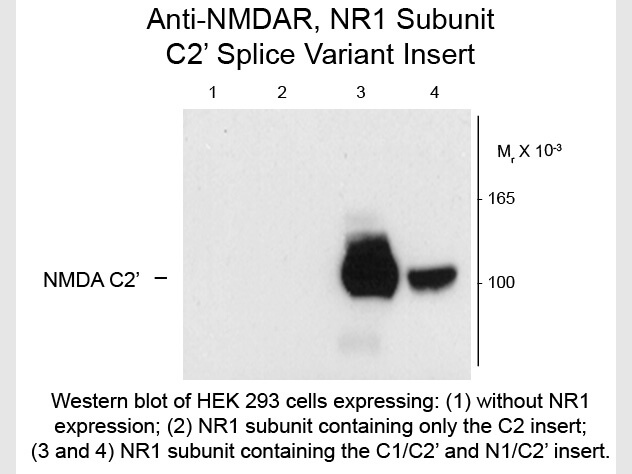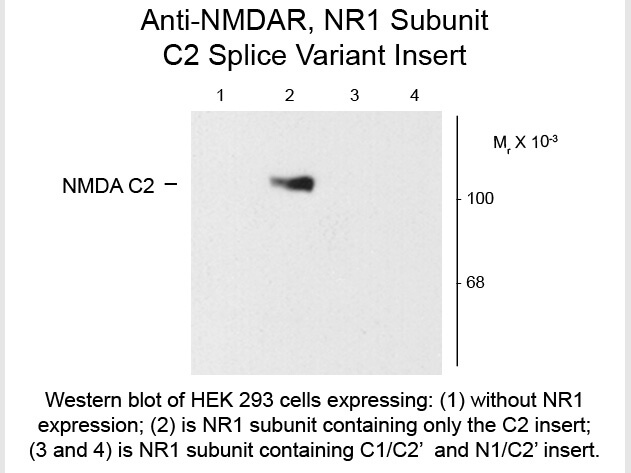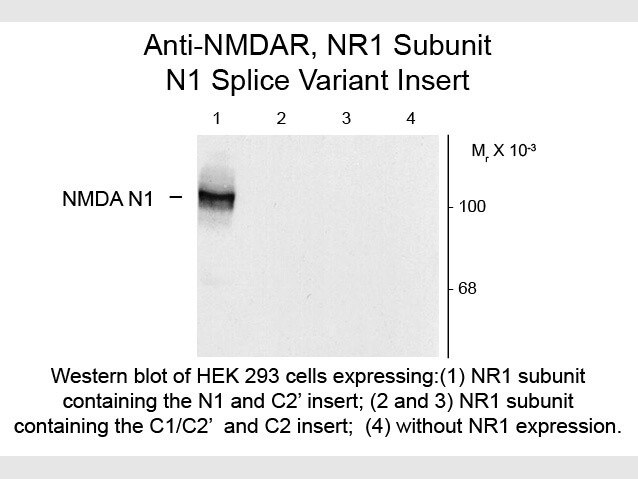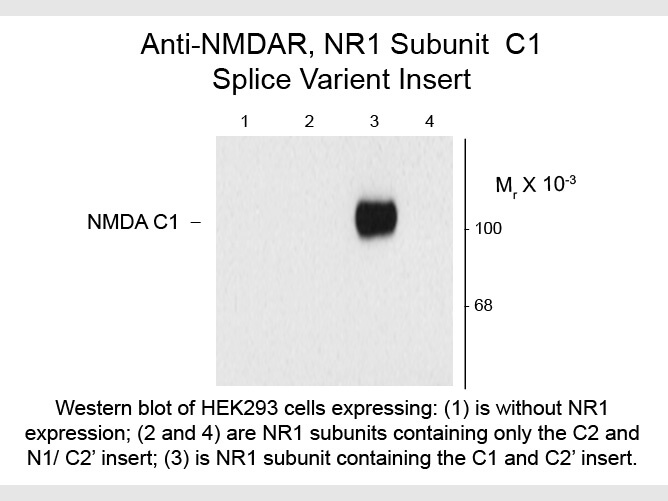Datasheet is currently unavailable. Try again or CONTACT US
NMDA NR1 Subunit Antibody
Mouse Monoclonal R1JHL
900-301-C85
15 µg
Lyophilized
WB, IHC
Mouse, Rat
Mouse
Shipping info:
$50.00 to US & $70.00 to Canada for most products. Final costs are calculated at checkout.
Product Details
Anti-NMDA NR1 Subunit (MOUSE) Antibody - 900-301-C85
mouse anti-NMDA NR1 Antibody, Glutamate [NMDA] receptor subunit zeta-1,N-methyl-D-aspartate receptor subunit NR1, NMD-R1, Grin1
Mouse
Monoclonal
CCS
Target Details
Grin1 - View All Grin1 Products
Mouse, Rat
Recombinant Protein
Anti-NMDA NR1 Subunit Antibody was produced by repeated immunizations with a fusion proteins containing amino acids 1-564 of the rat NR1 subunit of the NMDA receptor.
Anti-NMDA NR1 Subunit antibody is directed against rat NMDA NR1 subunit protein. The antibody was clarified from tissue culture supernatant. Reactivity is expected in rat and mouse. Cross reactivity with NMDA NR1 receptor from other species has not been determined.
P35439 - UniProtKB
NP_058706.1 - NCBI Protein
Application Details
IHC, WB
Anti-NMDA NR1 Subunit (Mouse) antibody is tested for use in Western Blotting, Immunohistochemistry, and Immunocytochemistry. Specific conditions for reactivity should be optimized by the end user. Expect a band of approximately 120 kDa in size corresponding to NR1 subunit of the NMDa receptor protein in the appropriate cell lysate or extract.
Formulation
Titrated value sufficient to run approximately 10 mini blots.
50µL
Neutral PBS
Shipping & Handling
Ambient
Store vial at -20° C prior to restoration. For extended storage aliquot contents and freeze at -20° C or below. Avoid cycles of freezing and thawing. Centrifuge product if not completely clear after standing at room temperature. Dilute only prior to immediate use.
Expiration date is one (1) year from date of receipt.
NMDA NR1 Subunit antibody detects NMDA NR1 receptor protein. The ion channels activated by glutamate are typically divided into two classes. Glutamate receptors that are activated by kainate and α-amino-3-hydroxy-5-methyl-4-isoxalone propionic acid (AMPA) are known as kainate/AMPA receptors (K/AMPAR). Those that are sensitive to N-methyl-D-aspartate (NMDA) are designated NMDA receptors (NMDAR). The NMDAR plays an essential role in memory, neuronal development and it has also been implicated in several disorders of the central nervous system including Alzheimer’s, epilepsy and ischemic neuronal cell death. The NMDA receptor is also one of the principal molecular targets for alcohol in the CNS. The NMDAR is also potentiated by protein phosphorylation. The rat NMDAR1 (NR1) was the first subunit of the NMDAR to be cloned. The NR1 protein can form NMDA activated channels when expressed in Xenopus oocytes but the currents in such channels are much smaller than those seen in situ. Channels with more physiological characteristics are produced when the NR1-subunit is combined with one or more of the NMDAR2 (NR2 A-D) subunits. NMDA NR1 Subunit antibody is ideal for investigators involved in Cell Signaling, Neuroscience, and Signal Transduction research.
This product is for research use only and is not intended for therapeutic or diagnostic applications. Please contact a technical service representative for more information. All products of animal origin manufactured by Rockland Immunochemicals are derived from starting materials of North American origin. Collection was performed in United States Department of Agriculture (USDA) inspected facilities and all materials have been inspected and certified to be free of disease and suitable for exportation. All properties listed are typical characteristics and are not specifications. All suggestions and data are offered in good faith but without guarantee as conditions and methods of use of our products are beyond our control. All claims must be made within 30 days following the date of delivery. The prospective user must determine the suitability of our materials before adopting them on a commercial scale. Suggested uses of our products are not recommendations to use our products in violation of any patent or as a license under any patent of Rockland Immunochemicals, Inc. If you require a commercial license to use this material and do not have one, then return this material, unopened to: Rockland Inc., P.O. BOX 5199, Limerick, Pennsylvania, USA.

